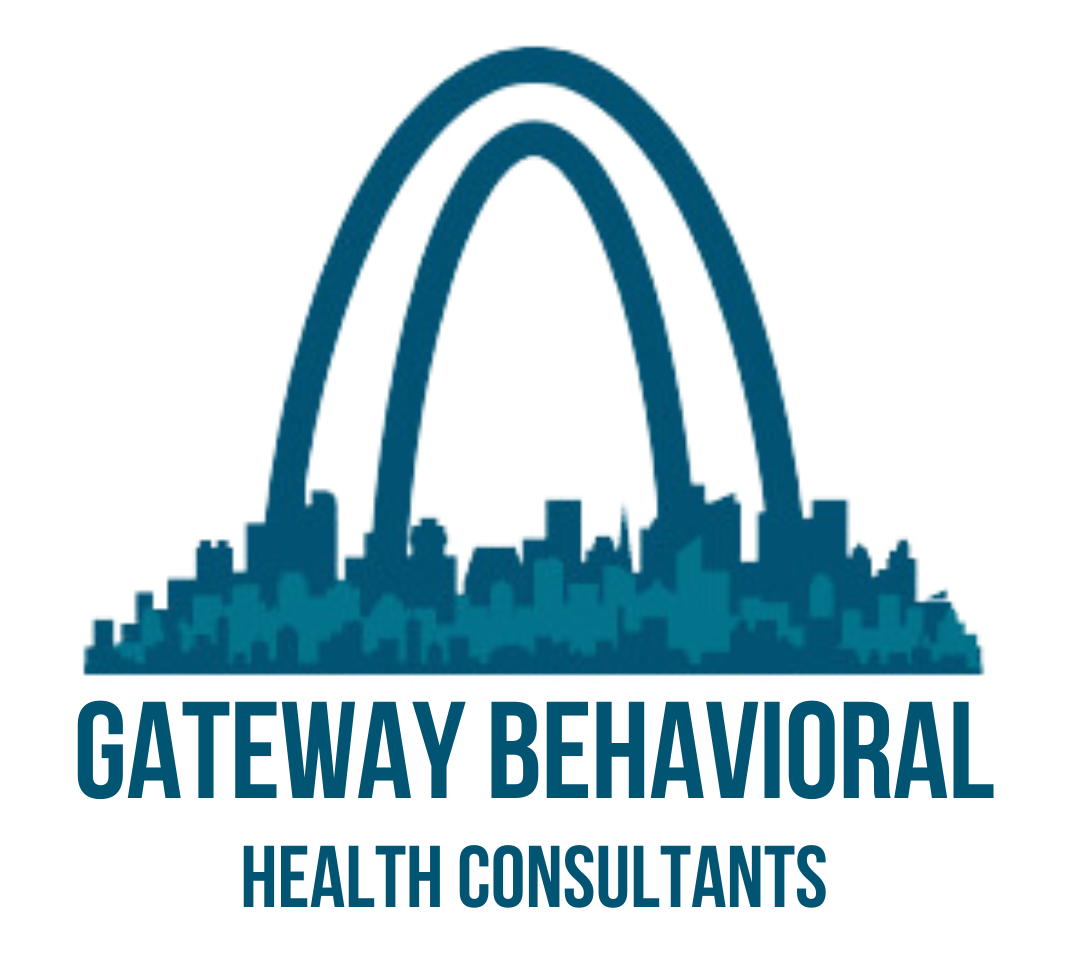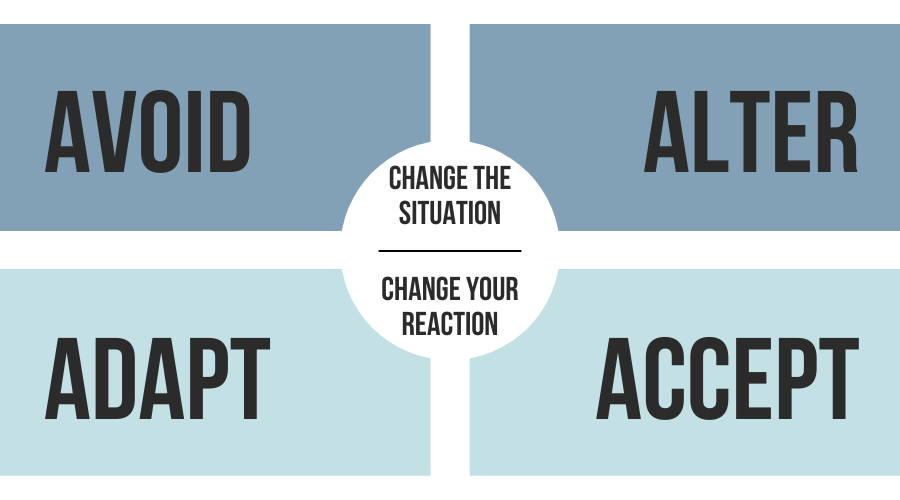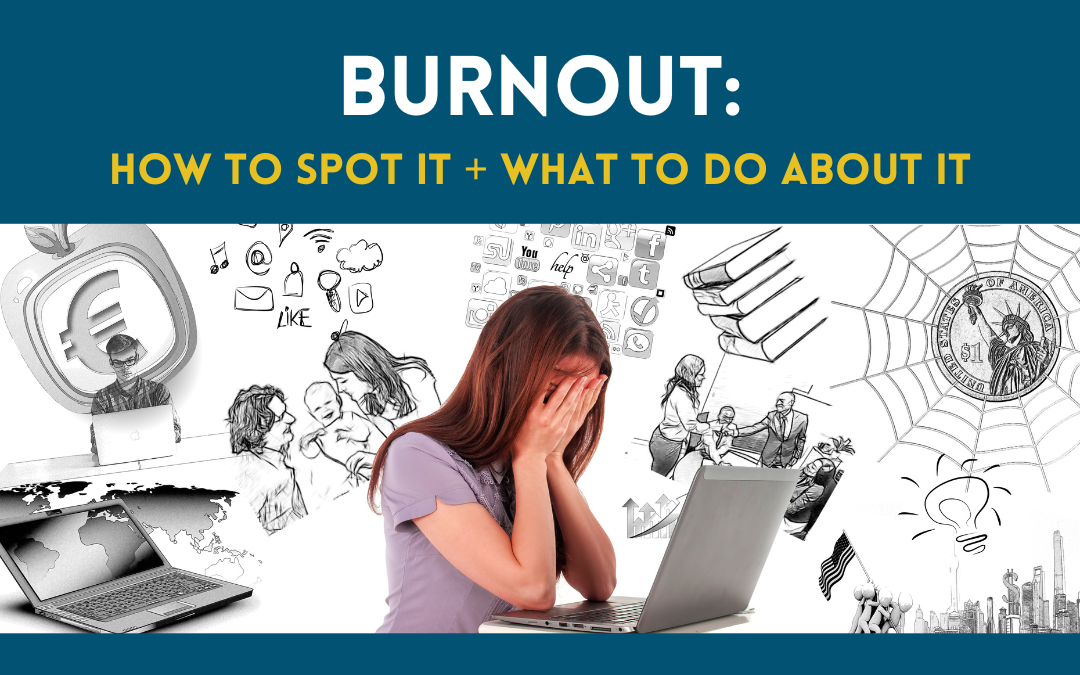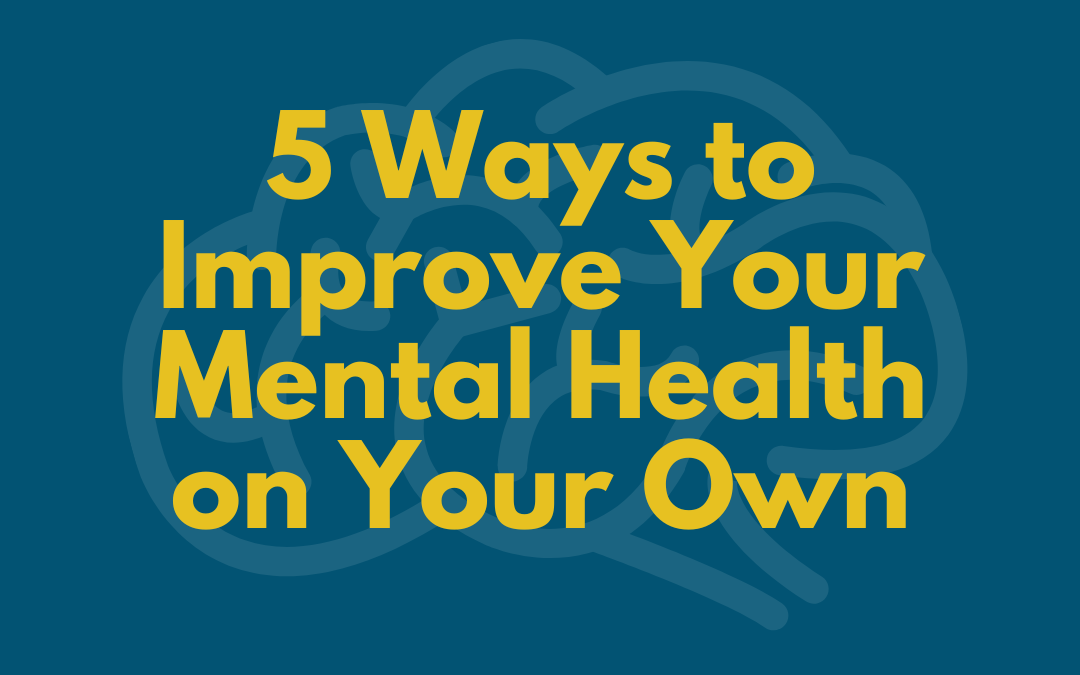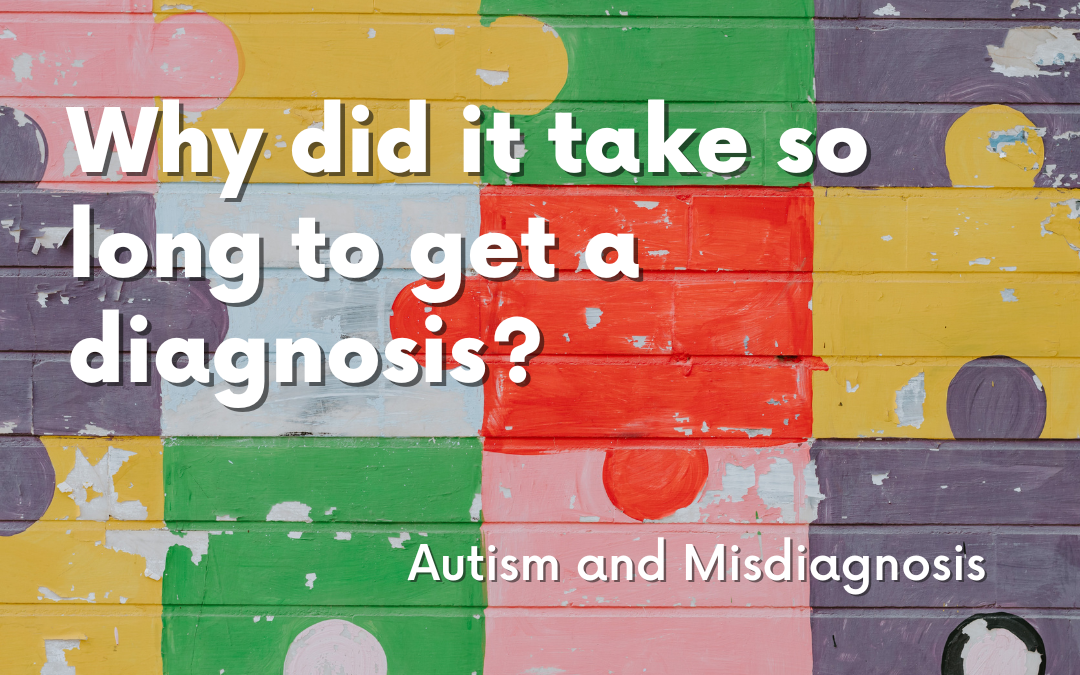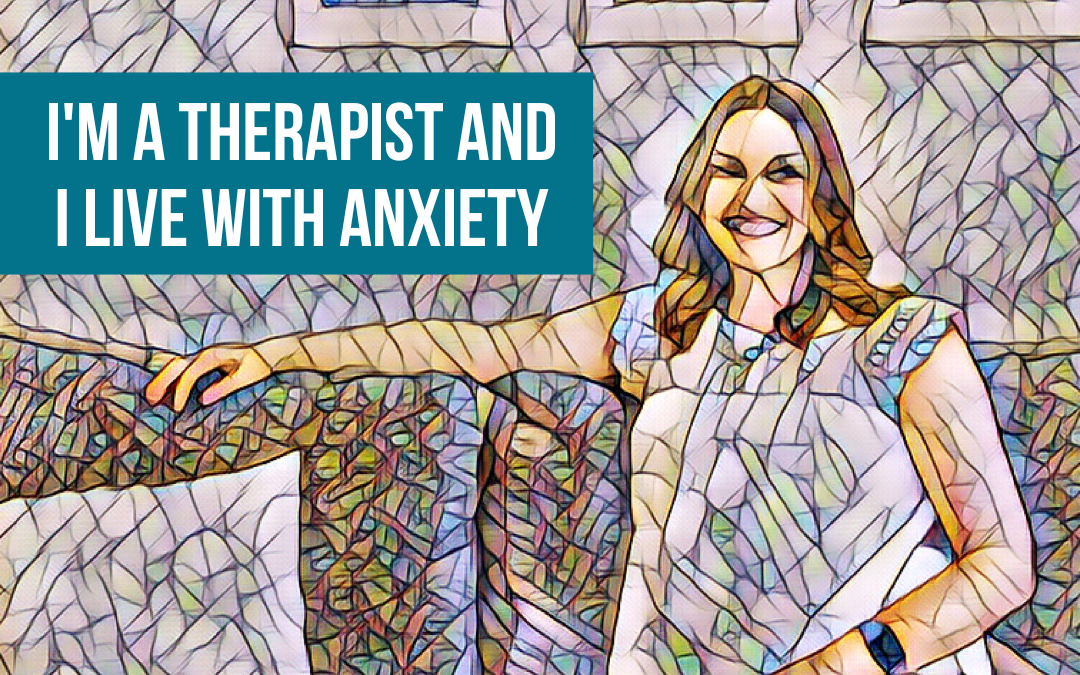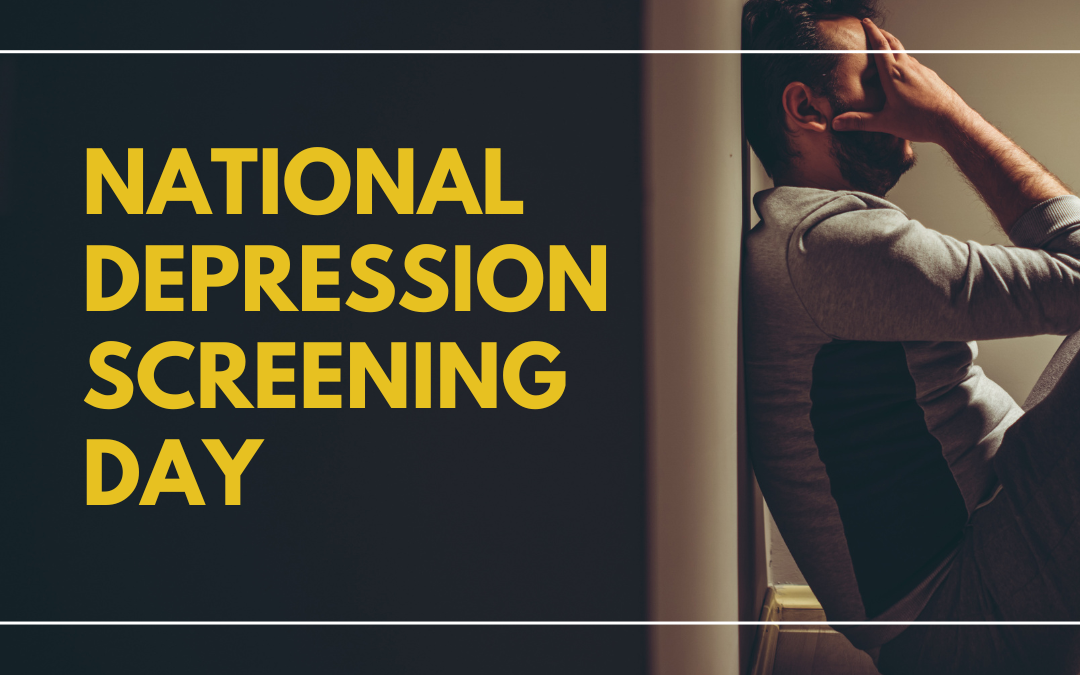Stress: Signs, Symptoms, and Strategies
Let’s be honest… life is full of stress! Juggling work, school, kids and family, household chores, all while trying to prioritize our mental and physical health can be exhausting!
Signs and Symptoms of Stress
Time to debunk some super common myths about stress.
❌
Stress is always bad
Stress can keep life in balance. What’s important is how we manage it. When we handle it well, we are productive and happy. Mismanage it, and we may fail or become even more stressed.
❌ S
tress is the same for everyone
False. We don’t all experience stress the same way. You may be stressed out by a high-pressure job, while your coworker thrives on it.
❌
Stress only needs attention when you develop major symptoms
False again. Minor symptoms (like headaches or stomach pain) are early warning signs and should not be ignored. Don’t wait for a major symptom!
❌
Eliminating stressors is the best way to manage stress
Not only is this false, it’s not always possible to eliminate stressors in our life. The best way to manage stress is to learn the strategies and tools that work best for you.
Stress is normal and common. The stress in your life will *hopefully* ebb and flow — you’ll experience phases in your life with high stress, and phases with seemingly no stress.
So how do you know when to ride the wave and wait it out vs. dealing with the stress in your life?
- You notice that you’re repeating the same mindless behaviors or engaging in self-destructive behaviors. This includes things like doom-scrolling, anxious thoughts, or repetitive movements.
- Chandeliering. When a normally calm person flies off the handle for no apparent reason. You’ve been stuffing the pain or anxiety down for so long that it finally erupts – physically and/or emotionally.
- You’re withdrawing from the people in your life and shutting down, both emotionally and physically.
- Your body is out of whack. This could be chronic illness, continually getting sick or run down, or constantly getting hurt.
The Stress Cycle
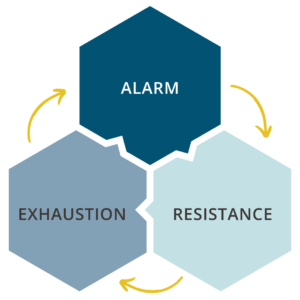 The stress cycle is our body’s natural response to stress. When we experience an external stressor, our body responds by going through three stages of the stress cycle: alarm, resistance, and exhaustion.
The stress cycle is our body’s natural response to stress. When we experience an external stressor, our body responds by going through three stages of the stress cycle: alarm, resistance, and exhaustion.
Alarm: This is the typical fight or flight mode our body goes into when we first experience a stressor.
Resistance: Once the immediate threat subsides, our body stabilizes but continues to stay on alert. If it’s a chronic stressor that isn’t going away, your body continues to remain on high alert.
Exhaustion: If the stress remains and you can’t complete the cycle, your body remains on high alert which leads to anxiety, fatigue, depression, etc.
It’s super common for people to get stuck in this cycle. Why?! Let me tell you…
Chronic Stressor. The external stressor isn’t going away.
Social Appropriateness. Maybe your stressor is a demanding boss, but the societal expectations in your workplace are to always say yes even if it means added stress.
It’s safer. Sometimes stress is all we know and the changes we need to make in our lives to eliminate the stress can be scary.
Maladaptive Coping Strategies. Not all coping strategies are good or effective. For example, using alcohol as a way to cope with stress doesn’t actually help us deal with the stress.
Infrequent coping strategies. Not utilizing your coping strategies regularly means they aren’t as effective.
The key to managing our stress is to complete the cycle. Easier said than done, right?
So how do we complete the stress cycle?!
- Physical Activity. Moving your body does wonders for managing stress!
- Mindfulness/Self-Awareness. Enough said.
- Cognitive Reappraisal. Recognize the negative pattern your thoughts have fallen into and change that pattern into one that’s more effective. Therapy can help you learn how to master this tool!
- Creative Expression. Find an outlet for your creativity!
- Connection. Laugh with someone. Show and/or receive affection. Spend time with people.
- Rest. Your body needs time and space to rest and sleep in order to recover.
- Self-Compassion & Gratitude. Start a daily gratitude journal and practice showing compassion and grace to yourself.
Dealing with stress is hard . And learning how to utilize those above strategies can be difficult and take practice. Here are some additional tips that can help:
There is no one size fits all approach. Each person is different. You’ll have to find which strategies work best for you.
Different stressors call for different strategies.
Utilize a variety of strategies for the most effective approach. Don’t just do one thing on our list – try as many as you reasonably can!
Schedule your strategies into your day. Add “take a walk” to your calendar. Schedule in a nap or a 15 minute break to practice gratitude. Whatever the tool is, adding it to your schedule will help ensure that it gets done.
The more regularly you complete the stress cycle, the better you will feel.
If stress is taking control of your life, we hope our tips and strategies have helped. But sometimes, it’s just not enough. If this is you, give us a call , send us a message , or schedule a consult call. We’d love to talk. ❤️
The post Stress: Signs, Symptoms, and Strategies appeared first on Gateway Behavioral Health Consultants.
- Mon - Fri
- -
- Sat - Sun
- Closed
Evenings Available By Appointment

